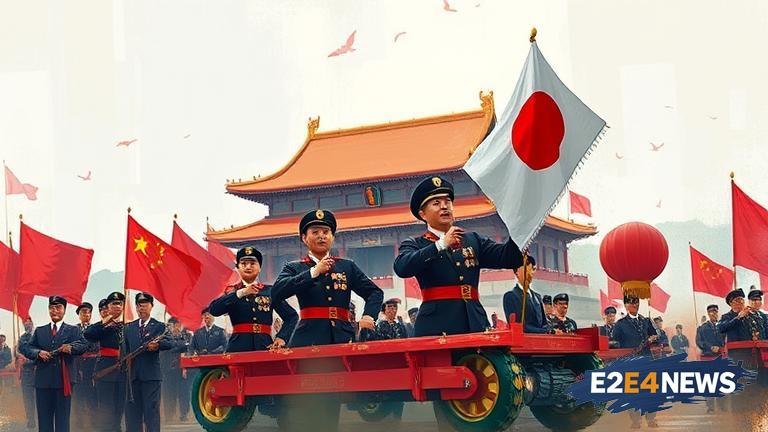China has lodged a formal protest with Japan over reports that it had asked foreign leaders to skip China’s Victory Day parade, which was held to commemorate the 70th anniversary of the end of World War II. The parade, which was attended by Russian President Vladimir Putin and other top leaders, was seen as a major showcase of China’s military might. However, Japan’s alleged attempts to dissuade foreign leaders from attending the parade have been met with strong criticism from China. Chinese officials have accused Japan of trying to undermine China’s international reputation and sabotage its efforts to promote regional stability. The diplomatic row between China and Japan has been escalating in recent months, with tensions over territorial disputes and historical issues. The two nations have been at odds over the Senkaku/Diaoyu islands, which are claimed by both countries. China has also been critical of Japan’s reinterpretation of its pacifist constitution, which allows for greater military cooperation with other nations. Japan, on the other hand, has expressed concerns over China’s growing military presence in the region and its assertive behavior in the South China Sea. The Victory Day parade was seen as a major opportunity for China to showcase its military capabilities and promote its vision for regional security. However, Japan’s alleged attempts to undermine the event have been seen as a major setback for China’s diplomatic efforts. Chinese officials have warned that Japan’s actions could have serious consequences for bilateral relations and regional stability. The diplomatic row between China and Japan has also been complicated by the involvement of other nations, including the United States. The US has been critical of China’s military expansion and has called on Japan to play a more active role in regional security. However, the US has also been keen to avoid antagonizing China and has called for calm and restraint in the region. The European Union has also weighed in on the issue, calling for greater dialogue and cooperation between China and Japan. Despite the diplomatic tensions, China and Japan have been working to strengthen economic ties, with bilateral trade reaching record levels in recent years. However, the diplomatic row over the Victory Day parade has highlighted the deep-seated tensions between the two nations and the challenges that lie ahead for regional stability. The incident has also sparked a heated debate in Japan, with some lawmakers calling for a more assertive approach to China and others advocating for greater caution. The Japanese government has been keen to avoid escalating the situation, but has also been under pressure from nationalist groups to take a tougher stance on China. The diplomatic row has also had implications for other nations in the region, including South Korea and Taiwan. Both nations have been watching the situation closely, with concerns over the potential impact on regional stability. The incident has also highlighted the need for greater dialogue and cooperation between nations in the region, with a view to promoting peace and stability. In conclusion, the diplomatic row between China and Japan over the Victory Day parade has highlighted the deep-seated tensions between the two nations and the challenges that lie ahead for regional stability. The incident has sparked a heated debate in Japan and has had implications for other nations in the region. It remains to be seen how the situation will unfold, but one thing is clear: the diplomatic row between China and Japan is far from over.
